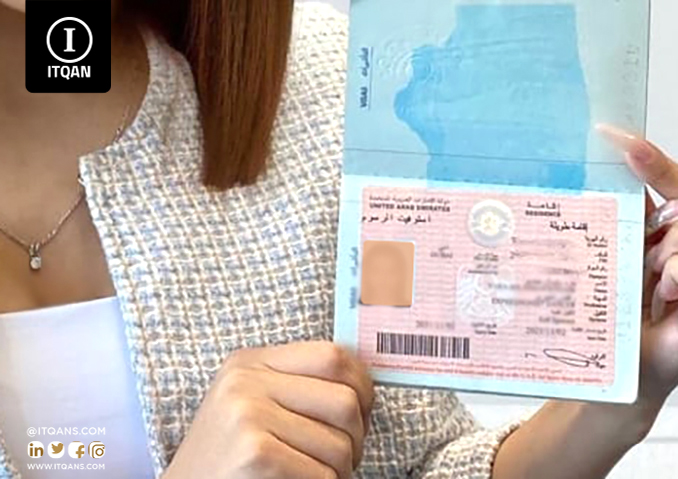Dubai is one of the most prominent commercial and investment destinations in the Arab region and the world. Thanks to its strategic location, advanced infrastructure, and supportive economic policies, Dubai has become a center for attracting investors and entrepreneurs from around the world, including the Kingdom of Saudi Arabia. This article aims to shed light on how to open a commercial register in Dubai for Saudis, by reviewing the legal conditions and requirements, and procedures necessary for registration, in addition to the advantages and investment opportunities that Dubai offers to Saudi investors.

Opening a commercial register in Dubai for Saudis
جدول المحتوى
ToggleConditions for opening a commercial register in Dubai
Opening a commercial register in Dubai for Saudis requires adherence to some conditions and requirements that ensure that the process runs smoothly and in accordance with applicable laws. These conditions include legal aspects, necessary documents, in addition to obtaining the necessary licenses.
- Legal requirements
Dubai has a clear legal system that requires foreign investors, including Saudis, to adhere to certain legal requirements to open a commercial register. The investor must determine the type of business activity he wishes to engage in and ensure that it complies with local laws and regulations. Foreign investors must also adhere to partnership regulations with Emirati citizens in some commercial activities, unless the activity is within free zones that allow full foreign ownership.
- Required documents
Opening a commercial register in Dubai requires submitting a set of necessary documents that include:
1. A copy of the passport of the investor and partners (if any).
2. A copy of the residence or visit visa.
3. A copy of the Emirates ID card (if the investor is a resident of the UAE).
4. The company’s articles of incorporation (if there are partners).
5. A lease or ownership contract for the business headquarters.
6. Initial approval from the Department of Economic Development in Dubai on the name and type of business activity.
7. Any additional documents that government agencies may request according to the type of activity.
- Necessary licenses
To ensure compliance with laws, Saudi investors must obtain the necessary licenses to conduct business activity. These licenses vary based on the type of activity and include:
1. General commercial licence: issued by the Department of Economic Development and covers most commercial activities.
2. Professional License: Required for activities that require certain professional qualifications, such as consulting and engineering services.
3. Free zone license: If the activity will be held within one of the free zones in Dubai, the license must be obtained from the competent authority in that zone.
4. Any additional licenses that may be required from other regulatory bodies depending on the type of activity, such as the Ministry of Health for medical activities or the Roads and Transport Authority for transportation activities.
By following these terms and requirements, a Saudi investor can open a commercial registry in Dubai and enjoy the investment opportunities available in this vital and dynamic market.
Procedures for opening a commercial register in Dubai for Saudis
The process of opening a commercial register in Dubai for Saudis is a simplified procedure but requires adherence to some basic steps to ensure things go smoothly. In this section, we will review the main steps that must be followed to achieve this.
- Electronic submission
The first steps for registration begin with electronic submission, which is the easiest and quickest option. Saudis wishing to open a commercial register in Dubai can access the website of the Department of Economic Development in Dubai, where they can fill out the required form and submit the application online. This form includes basic information about the proposed business activity, along with personal data of the entrepreneur. After submitting the form, the prescribed fees are paid electronically.
- Visit government agencies
Although electronic submission covers a large part of the process, a visit to government agencies may be required in some cases to complete some procedures. These entities include the Department of Economic Development, the municipality, and the Department of Naturalization and Residence. During these visits, the entrepreneur may be asked to provide additional documents or signatures necessary to complete the registration. It is advised that the applicant has a copy of all required documents to avoid any delays.
- Follow up and obtain approval
After completing the electronic application and visiting the required government agencies, the follow-up stage comes. The project owner can follow up on the status of his application through the Department of Economic Development’s electronic portal or by contacting customer service. In the event of any deficiency in documents or information, the applicant will be notified to submit the required information. After all conditions and requirements are met, final approval is issued and the business license is granted. The entrepreneur can then start operating his business legally in Dubai.
Dubai is committed to providing quick and efficient services to investors, and these measures are part of the facilities provided by the emirate to attract foreign investments, including Saudi investments.
Advantages of establishing a company in Dubai
Dubai is an ideal destination for establishing companies thanks to the many advantages offered by this leading city. Establishing a company in Dubai provides an ideal business environment that combines rapid economic growth, advanced infrastructure, and supportive government policies.
- Strategic location
Dubai enjoys a strategic geographical location that makes it a global commercial center linking East and West. This location provides companies with quick access to regional and international markets. In addition, Dubai is home to one of the busiest airports in the world, facilitating the movement of goods and people alike. This unique location enhances growth and expansion opportunities for startup companies.
- Tax exemptions
One of the biggest advantages that attract investors to Dubai is the tax exemptions. Dubai offers a very favorable tax environment as it does not impose taxes on personal income or corporate profits in many free zones. This makes it an ideal destination for investors who want to maximize profits without experiencing a large tax burden. In addition, there are many bilateral tax agreements between the UAE and other countries, which enhances Dubai’s attractiveness as an investment destination.
- Advanced infrastructure
Dubai is investing heavily in developing its infrastructure to meet the needs of modern companies. The city provides world-class infrastructure that includes advanced transportation networks, modern sea and air ports, and highly efficient data centers. This is in addition to the availability of a wide range of logistical and technological services. Advanced infrastructure contributes to facilitating business operations and providing an ideal work environment for companies.
These advantages reflect Dubai’s commitment to providing a competitive and attractive business environment for investors from all over the world.
Basic steps to establish a company in Dubai for Saudis
Establishing a company in Dubai requires following a set of systematic steps to ensure compliance with local laws and regulations. These steps include:
- Choose the company type
The first step in the company establishment process is to determine the type of company you want to establish. There are several types of companies that can be established in Dubai, including limited liability companies (LLC), public joint stock companies, private joint stock companies, and freehold companies. Each type of these companies has its own advantages and legal requirements, and the investor must choose the type that suits the nature of his business activity and investment objectives.
- Company registration
After choosing the company type, comes the company registration stage. This requires submitting an application to the Dubai Economic Development Department (DED) or to the competent authority in the free zone if the company will be located in one of the free zones. The application includes submitting all required documents such as the company’s articles of incorporation and articles of association, in addition to submitting a proposal for the company’s name, which must be unique and not used by other companies.
- Obtaining a license
Obtaining a business license is the final step in establishing a company. This requires submitting an application to the competent authority, such as the Department of Economic Development or the Free Zone Authority, and obtaining the necessary approvals from other government departments if the business activity requires it. These approvals may include the Ministry of Trade and Industry, the Ministry of Health, or the Telecommunications Regulatory Authority, depending on the type of business activity. After completing all procedures and obtaining the license, the company can start its business operations legally and effectively in Dubai.
By following these basic steps, investors can set up a company in Dubai in a smooth and orderly manner, allowing them to take advantage of the business opportunities available in this thriving global city.
Potential challenges and how to overcome them
When establishing a company in Dubai , businesses can face some challenges that may hinder the workflow. It is important to recognize these challenges and know how to overcome them to ensure the success of the project. Below are the most prominent potential challenges and how to deal with them:
Legal challenges
Legal challenges include complexities of local laws and bureaucratic procedures that may be unfamiliar to foreign investors. The most prominent of these challenges are:
- Deep understanding of the laws: Commercial laws in Dubai differ from those in other countries, so it is necessary to understand all the legal requirements for establishing and operating a business.
- Bureaucratic procedures: Bureaucratic procedures can be complex and time-consuming, which may delay the start of a business.
Financial challenges
Financial challenges include financing the project and managing costs effectively to ensure continuity and profitability. Among these challenges are:
- Providing capital: It may be difficult for some companies to obtain sufficient financing to establish and operate a business.
- Operating costs: Operating costs in Dubai can be high, especially in the early stages of establishing a company.
Logistical challenges
Logistical challenges include challenges related to transportation, distribution and infrastructure. Among these challenges are:
- Distribution and transportation: Challenges related to transporting and distributing products inside and outside Dubai.
- Infrastructure: Although Dubai has a developed infrastructure, there may be challenges in adapting to this infrastructure and making the best use of it.
By overcoming these challenges and working to solve them effectively, businesses can achieve sustainable success in Dubai and benefit from the many benefits this global city has to offer.
In conclusion, it can be said that establishing a company in Dubai represents a unique investment opportunity characterized by many benefits and advantages that make it an ideal destination for business owners and investors from all over the world. The emirate’s strategic location, coupled with tax exemptions and advanced infrastructure, contributes to creating a business environment conducive to growth and prosperity.
However, the process of establishing a company is not without challenges that investors may face. With careful planning and understanding of the legal framework, financial and logistical challenges, these obstacles can be overcome and success can be achieved. Choosing the right type of company, registering it properly, and obtaining the necessary licenses are essential steps that must be taken into account to ensure the establishment of a strong and sustainable company.
Ultimately, success in establishing and managing a company in Dubai requires striking a balance between taking advantage of the available advantages and overcoming the potential challenges. With proper guidance and preparation, investors can achieve their goals and achieve great successes in the thriving and dynamic Dubai market.
The most important frequently asked questions about opening a commercial register in Dubai for Saudis
What documents are required to open a commercial register in Dubai?
The process of opening a commercial register requires submitting several basic documents, such as a passport, residence visa, a copy of the Emirates ID card, a business plan, and a copy of the office lease contract.
Does a Saudi investor need a local partner to open a commercial register in Dubai?
If the investment is outside the free zones, the Saudi investor usually needs a local partner with 51% of the company’s shares. In free zones, foreign investors can own the company 100%.
What types of business licenses are available in Dubai?
Types of business licenses in Dubai include commercial licensing, industrial licensing, and professional licensing. You must choose the license that suits the type of business activity you wish to practice.
Are there special conditions for Saudi investors when opening a commercial register in Dubai?
There are no special conditions for Saudi investors that distinguish them from investors of other nationalities. Saudi investors follow the same procedures and regulations as all foreigners.
What are the fees associated with opening a commercial register in Dubai?
Fees related to opening a commercial register include the licensing cost, government fees, and company registration fees. These fees vary depending on the type of activity and the size of the company.
How can I obtain a work visa after opening the commercial registry?
After opening the commercial registry, the investor can apply for a work visa for investors and employees through the Department of Economic Development or the Federal Authority for Identity and Citizenship.
















